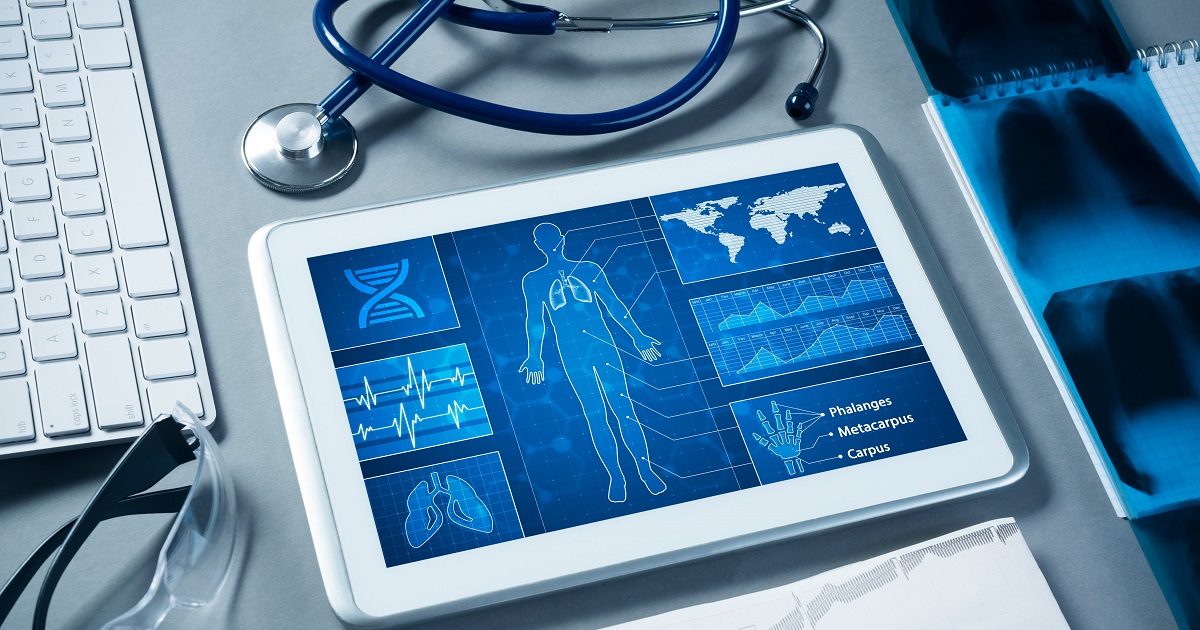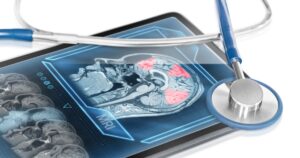Royal Philips a global leader in health technology announced its portfolio of smart diagnostic systems and transformative workflow solutions featured at the Radiological Society of North America annual meeting. Powered by AI, the company will showcase its latest systems and informatics solutions designed for providers to efficiently deliver patient-centric, high-quality imaging services.
Overwhelming volume of radiology data compounding staff shortages and burnout
Radiology plays a critical role in diagnosing and guiding patients into the right treatment plans. However, with increasing staff shortages and workloads, radiologists and staff continue to struggle to manage and interpret the huge volume of data captured to provide quality care for each patient. In the recent Future Health Index 2022 report commissioned by Philips, 24% of radiology leaders surveyed stated that managing the sheer volume of data available to them is their top data-related issue, with nearly two-thirds (65%) indicating their staff are overwhelmed by data overload.
“With 47% of radiologists experiencing burnout [1], our customers are looking for innovations to help reduce their workloads and seamlessly integrate into their day-to-day operations. With smart intelligence built into imaging systems and informatics across the radiology workflow, Philips’ integrated solutions condense large volumes of data into patient-centric actionable insights for earlier and more definitive diagnosis and treatment.”
Kees Wesdorp, Chief Business Leader of Precision Diagnosis at Philips
AI-powered solutions enhance operational efficiencies and simplify complex workflows
Some of the biggest challenges facing radiology leaders today are driven by managing complex, disconnected workflows which can negatively impact patient care, staff experience, outcomes, and cost. Visitors to the Philips booth at RSNA will see how the company’s latest interoperable and vendor-neutral operational solutions and strong portfolio of smart connected imaging systems help streamline and transform the radiology workflow to improve patient and staff experience; advance clinical and diagnostic confidence for better health outcomes; and drive a sustainable, resilient diagnostic infrastructure to help lower the cost of care. Featured at RSNA will be Philips’ AI-enabled technology [2] that automates and accelerates routine and repetitive tasks to generate patient-centric insights from large volumes of data to help improve productivity.
Solutions include Philips Imaging Orchestrator – ROCC and Philips Ultrasound Collaboration Live, both pioneering the virtualization of radiology, extending care and collaboration beyond traditional models. Philips Imaging Orchestrator – ROCC, a vendor-neutral, multi-modality, multi-site telepresence solution provides advanced tele-acquisition capabilities and seamlessly connects imaging experts at a command center with technologists at scanning locations across an organization. Philips Ultrasound Collaboration Live tele-ultrasound, available on Philips ultrasound systems – EPIQ Elite and Affiniti – allows teams to securely video stream from their ultrasound system to a PC or mobile device for remote, on-demand access to clinical expertise regardless of location.
Philips will also introduce the latest in AI-enabled image interpretation to help prioritize patient worklists based on clinical outcomes and expand diagnostic capabilities with its new Philips Advanced Visualization Workspace, with enhanced features to automate reporting and help drive earlier and more definitive diagnosis. Also featured is Philips Enterprise Performance Analytics – PerformanceBridge – to enhance operational decision-making through a vendor-neutral, real-time data analysis solution to help improve productivity and reduce costs.
Smart connected imaging systems advance clinical and diagnostic confidence
New at RSNA, Philips’ AI-powered MR SmartSpeed is designed to increase speed, image quality, and productivity and drive diagnostic confidence with improved image resolution via the AI reconstruction algorithm. It utilizes Philips’ state-of-the-art speed engine and an award-winning [3] AI reconstruction technology delivered at the source of the MR signal to ensure no data loss. SmartSpeed joins the company’s expanding portfolio of AI-driven MR solutions which includes AI-based touchless patient sensing, SmartExam, and MR Workspace. Philips will also showcase MR 5300, Philips’ newest BlueSeal Magnet, and industry-first wide bore helium-free operations system design for sustainable imaging at lower site costs without image quality or clinical compromises.
Philips will spotlight its award-winning Spectral CT 7500, the company’s latest dual-detector CT system helping radiologists better characterize disease and reduce scan times at the same dose levels as conventional scans. Used in oncology imaging, cardiac imaging, and interventional radiology, the system has demonstrated a 34% reduction in time to diagnosis, a 25% reduction in repeat scans and a 30% reduction in follow-up scans [4]. Philips will also demonstrate its latest innovations in minimally-invasive care with the company’s SmartCT 3D suite of interventional tools including its Azurion 7 C20 with FlexArm Image-Guided Therapy System and Zenition 70 Mobile C-arm with Flat Detector.
Philips will also introduce the Ultrasound Compact 5000 Series system and the Philips Lumify Handheld Ultrasound, now featuring pulse wave Doppler for all physicians – from cardiologists and radiologists to emergency care – to quickly assess hemodynamics in cardiac function anytime, anywhere. Also making its first appearance at RSNA is Philips Fluoroscopy 7000 N – ProxiDiagnost N90, combining digital radiography and high-end nearby fluoroscopy to help enhance clinical confidence and improve patient and staff satisfaction.
About Royal Philips
Royal Philips is a leading health technology company focused on improving people’s health and well-being, and enabling better outcomes across the health continuum – from healthy living and prevention, to diagnosis, treatment and home care. Philips leverages advanced technology and deep clinical and consumer insights to deliver integrated solutions. Headquartered in the Netherlands, the company is a leader in diagnostic imaging, image-guided therapy, patient monitoring and health informatics, as well as in consumer health and home care. Philips generated 2021 sales of EUR 17.2 billion and employs approximately 79,000 employees with sales and services in more than 100 countries.



